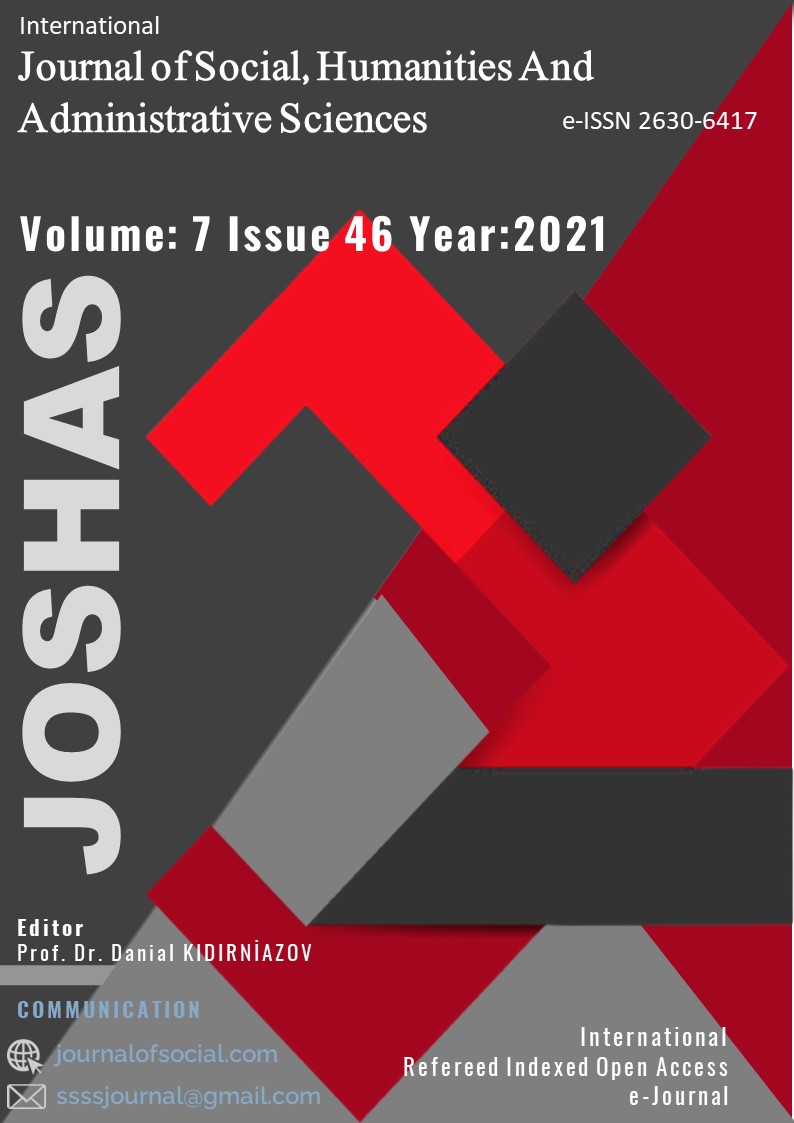DESTRUCTIVE PEACE; ABSENTEEISM OF MUTUAL CIVIC NATIONALISM AND SOCIAL CAPITAL IN BOSNIA AND HERZEGOVINA
Author :
Abstract
The manuscript addresses historical and substantive co-occurring processes and conditions of Bosnian state-building, peace-building, and developmental status quo by exploring civic nationalism and social capital patterns within sociocultural-political and ethnoreligious hybrid ideological polarization. Moreover, the paper examines the Western Balkans post-conflict ethnonational and religious orders, arguing that regional geopolitical secessionist rhetoric and failure impede social development and stability, aiming to conceptualize explications. Within the Dayton Peace Accords political system, ethnoreligious framework proves to be more consequential than plural civic space and social capital. In a democratic and liberal environment, no one should rule over anyone, but legalism and laws, which the state should enforce and thus guarantee peace and critical human security to all citizens. In the current atmosphere of disunity at various levels of B&H society, including the political issue of affiliation, it does not seem possible to unify the Bosnian nation socio-politically. The historical-ideologically shape of nationalities associates metaphysics to non-Bosnian territories and imposes people's awareness of external homelands. The nation-state is the exclusively political option of the contemporary age. Nationalism has proven to be an adverse ideology, leading to destruction, wars, and discrimination. Nevertheless, not every national project is malignant. Civic nationalism confronts the nation's ethnic-religious model generated on ethnicity, religion, and race. In order to understand the past, build a shared future, and form the decisive social capital, civic, democratic awareness, developing a better quality of life, it is crucial to decrease the behavioral practices of division promoted by dominant ethnopolitical antagonistic rhetorics.
Keywords
Abstract
The manuscript addresses historical and substantive co-occurring processes and conditions of Bosnian state-building, peace-building, and developmental status quo by exploring civic nationalism and social capital patterns within sociocultural-political and ethnoreligious hybrid ideological polarization. Moreover, the paper examines the Western Balkans post-conflict ethnonational and religious orders, arguing that regional geopolitical secessionist rhetoric and failure impede social development and stability, aiming to conceptualize explications. Within the Dayton Peace Accords political system, ethnoreligious framework proves to be more consequential than plural civic space and social capital. In a democratic and liberal environment, no one should rule over anyone, but legalism and laws, which the state should enforce and thus guarantee peace and critical human security to all citizens. In the current atmosphere of disunity at various levels of B&H society, including the political issue of affiliation, it does not seem possible to unify the Bosnian nation socio-politically. The historical-ideologically shape of nationalities associates metaphysics to non-Bosnian territories and imposes people's awareness of external homelands. The nation-state is the exclusively political option of the contemporary age. Nationalism has proven to be an adverse ideology, leading to destruction, wars, and discrimination. Nevertheless, not every national project is malignant. Civic nationalism confronts the nation's ethnic-religious model generated on ethnicity, religion, and race. In order to understand the past, build a shared future, and form the decisive social capital, civic, democratic awareness, developing a better quality of life, it is crucial to decrease the behavioral practices of division promoted by dominant ethnopolitical antagonistic rhetorics.
Keywords
- Arta A. (2008). Exploring social capital, a missing link in the state-building, and development process in
- Arta A. (2008). Exploring social capital, a missing link in the state-building, and development process in Kosovo, Centre international de formation européenne, 2008, 10.3917/eufor.349.0205
- Delic, Z., Saric, H. & Osmanovic, N. (2017). Significance of Social Capital in Socio-economic Development of Bosnia and Herzegovina, International Business Research Archives 10 (3): 169-181.
- Democratization Policy, (2021). DPC. Making sense of Croatia's destructive Bosnia and Herzegovina (BiH)policy. http://www.democratizationpolicy.org/making-sense-of-croatias-destructive-bosnia-and-herzegovina- bih-polic/
- Despotovic, Lj. (2009). Politički mitovi, nacionalizam, antinacionalizam i demokratija na prostoru bivšeJugoslavije [Political myths, nationalism, antinationalism and democracy in the space of the formerYugoslavia], in: Mitovi nacionalizma i demokratija, Novi Sad: Centar za istoriju, demokratiju i pomirenje
- Deutsche Welle, (2010). Karadzic se nece pokajati [Karadzic will not repent], https://www.dw.com/hr/karad%C5%BEi%C4%87-se-ne%C4%87e-pokajati/a-5300275
- Soldo, V. (2021). Detsche Welle, Istraživanje o BiH – Pomirenje je proces [BiH Research - Reconciliation is a process], https://www.dw.com/bs/istra%C5%BEivanje-o-bih-pomirenje-je-proces/a-59094882
- Fukuyama, F. (2018). Identity: The Demand for Dignity and the Politics of Resentment, New York: Farrar, Straus and Giroux
- Gellner, E. (2009). Nations and Nationalism (New Perspectives on the Past, Ithaca: Cornell University Press.Hadžić, F. (2020). The Politicization of Religion and the Sacralized Balkan Nations Regarding Bosnia and Herzegovina." Occasional Papers on Religion in Eastern Europe 40 (7): 105-131.
- Hadžić, F. (2021). Agnosticism and Atheism as Amoralism and Anti-Ideological Sociopolitical Paradigm inthe Balkans, Specifically in Bosnia and Herzegovina, Occasional Papers on Religion in Eastern Europe (OPREE) 41 (2): 67-85.
- Häuberer, J. (2011). Introducing the Civic Perspective on Social Capital – Robert D. Putnam’s Concept ofSocial Capital. In: Social Capital Theory. VS Verlag für Sozialwissenschaften, https://doi.org/10.1007/978-3- 531-92646-9_3
- N1, (2021). Dodik: Schmidt se lažno predstavlja kao visoki predstavnik [Dodik: Schmidt falsely presentshimself as High Representative], https://ba.n1info.com/vijesti/dodik-schmidt-se-lazno-predstavlja-kao-visoki- predstavnik/
- Perica, V. (2016). Vreme, Narod, pleme, klan – Balkan [People, tribe, clan - Balkan], https://www.vreme.com/cms/view.php?id=1417311
- Prism Research, (2015). Public opinion poll results, Analitical report, Office of the UN Resident Coordinator, Sarajevo: Prism Research
- Radio Free Europe, (2021). Dodik Says Bosnian Serbs Favor Abolition Of Office Of High Representative, https://www.rferl.org/a/dodik-bosnian-serbs-favor-abolition-of-high-representative/31144145.html
- Rajković, A. (2017). Prevrednovalačko prikazivanje pokreta otpora ili ženski obračun s totalitarizmomfašističke Francuse [A revaluation portrayal of the resistance movement or a female confrontation with thetotalitarianism of fascist France], Treća, Vol 10, Issue 1-2: 31-49 http://zenstud.hr/wp- content/uploads/2017/12/Tre%C4%87a-1-2.-vol-XIX.-2017.pdf
- Smith, A. (1996). Culture, Community and Territory: The Politics of Ethnicity and Nationalism. International Affairs 72 (3): 445-458
- Trgovcevic, Lj. (1996). The Kosovo myth in the first world war, In Ilija Konev (ed.), Sveti mesta na Balkanite, Blagoevgrad: UNESCO
- Tocqueville, A. (2000), Democracy in America, (Author), Harvey C. Mansfield, (Translator), Delba Winthrop (Translator), Chicago: University of Chicago Press.





